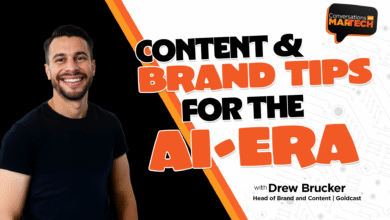Why Brands Are Ditching Agencies for New Strategies

▼ Summary
– 40% of companies are likely to switch from their primary agency in the next six months, reflecting pressure on traditional client-agency models due to tightening budgets and evolving expectations.
– Brands are increasingly bringing services in-house, with 83% citing cost efficiency as the key driver and 86% reporting satisfaction with their in-house teams’ output.
– Dissatisfaction with value and ROI is a top reason for ending agency relationships, as brands demand justification for every dollar spent amid budget scrutiny from leadership.
– Brands are shifting to fragmented, project-based partnerships and shorter terms, allowing flexibility to test specialized agencies rather than relying on a single long-term retainer.
– Agencies must adapt by becoming strategic partners with clear communication, deep business understanding, and proven expertise to meet expectations for transparency and accountability.
A quiet shift is reshaping the marketing world. More companies are questioning their dependence on traditional agencies, driven by tighter budgets, growing internal teams, and rising pressure to prove performance. Control, cost efficiency, and measurable outcomes now sit at the heart of every marketing decision.
The rise of in-house marketing teams captures much of this transformation. Businesses that once relied on agencies for strategy, creative, and media are now building those skills internally. Financial efficiency is the biggest motivation , 83% of brands cite cost reduction as the main reason for developing in-house capabilities.
The conventional agency model, often tied to media spend or deliverables, has barely evolved in decades. Many brands complain about “bait-and-switch” staffing , senior experts during the pitch replaced by junior teams post-contract. Only a fraction of fees go toward top-tier talent.
According to research by WFA and The Observatory International, brands also bring marketing in-house to gain faster response times (76%), closer alignment with brand values (59%), and deeper internal understanding (59%). Quality concerns appear overstated: 86% of brands say they’re satisfied with internal performance, with full satisfaction up from 23% to 33% since 2020.
This doesn’t spell the end for agencies, but it demands reinvention. The ones that endure will act as specialized partners , not outsourced executors.
The ROI Reckoning
Value has become the decisive test for agency relationships. In uncertain economies, every marketing dollar must earn its place. Dissatisfaction with ROI now surpasses strategic disagreements as the top reason clients end contracts. Agencies that pitch big ideas but deliver uneven execution face growing scrutiny over their fees.
When leadership mandates cost cuts, 40% of marketing heads admit agency fees are first on the chopping block. Retainers without proven outcomes no longer survive. Brands now expect clear demonstrations of profit impact, customer lifetime value, and growth contribution , not just metrics around clicks or impressions.
The agencies thriving today are those that move the conversation from deliverables to results, proving how their work advances revenue and retention.
From Retainers to Projects
The “one-agency-for-everything” model has mostly vanished. Companies now juggle multiple partners , one for creative, another for SEO, others for PR or media. This diversification gives brands flexibility but dilutes the traditional “lead agency” role.
Project-based contracts are rising fast, replacing long-term retainers. Clients bring in specialists for short campaigns, testing chemistry and capability before committing further. The upside: more agility and performance pressure. The downside: heavier coordination and loss of institutional memory.
Still, this modular approach lets brands handpick experts when needed , and agencies that perform stand a better chance at earning repeat business.
Redefining Partnership
What brands want from agencies has fundamentally changed. Execution isn’t enough; strategic collaboration and transparency now define strong relationships. Research shows “chemistry” outranks credentials as the deciding factor in agency selection.
Authenticity matters more than polished presentations. Brands value honest discussions about what’s working , and what’s not , especially when results fall short. They expect partners who understand their industry, share insights freely, and respect internal processes.
Agencies that rely on junior teams to manage high-value accounts without attention to data or measurement lose trust quickly. Those that integrate seamlessly with internal departments, complement skills, and show measurable impact remain indispensable.
The New Balance
This evolution isn’t anti-agency , it’s a demand for accountability. Shorter cycles, smaller budgets, and data-driven management have shifted power toward brands. Agencies that adapt to this new balance , becoming specialists who enhance in-house teams rather than replace them , will define the next chapter.
The age of guaranteed retainers is ending. What remains is a sharper, more transparent relationship built on trust, results, and mutual growth.
(Source: Search Engine Journal)





